🇦🇫 Afghanistan – hello how are you I’m fine
4 days and 912km (Total: 94 days and 19,792km)
“Foreigners face a high risk of terrorist attacks and kidnapping.”
I get it, western governments don’t want Brits-abroad happening in Afghanistan. But when you cut through the conservative advice, you find stories from recent foreign travellers, of different nationalities and genders, that are surprisingly positive. It’s like a rollercoaster ride: there are warning signs plastered all over it but, most of the time, the experience is good. So we packed our bags — like we do every day — and set off to find out.
The Afghan embassy in Termez, Uzbekistan, was a little residential building on the side of the street, with a flag flying above a small security shack. The address on Google Maps takes you to entirely the wrong place. Our phones were taken off us and we were walked through to a small, dark room, where the consular officer asked why we wanted to visit the country, as if confused. When we told him we wanted to see his country and its people, he told us we could get a visa that same day, if we submitted the application before 12pm and paid fifty dollars extra.
There was a lot of paperwork to fill out, all in Persian, but a man and his two sons across the road offered to do it all for twenty dollars. After countless spelling mistakes and a couple of power cuts, the forms were ready by 11:42am. We ran back to the embassy and handed everything over. Then we had to go to a bank to pay for the visa before returning at 4:30pm to find it stuck inside our passports, stamped with “Land Only.” We had our final beer in Uzbekistan that night before heading into Afghanistan the next day.
Exiting Uzbekistan was smooth. Entering Afghanistan was… significantly more unstructured… and a lot more intimidating. Halfway across the “Friendship Bridge” connecting the two countries, we had our first encounter with the Taliban: two men in black t-shirts with the Taliban emblem, AK-47s slung over their shoulders. Guns are common at most borders, but their presence here felt very different.
They checked the visa stickers in our passports and waved us through. At the next stage, we had to unload our panniers and run them through an x-ray machine (looking for guns, drones, or alcohol). Then our passports were stamped, our photos taken, and we were officially in. It ended up being the quickest — and possibly friendliest — border entry we’ve had. The fact we were British didn’t change their attitude to us one bit. One officer wearing only civilian-style Afghan clothes — which we learnt means he’s the most senior — even pulled out a map of the country and passionately showed us the best places we should visit.
We had a short ride to our first stop, Mazar-e-Sharif. We counted seven Taliban checkpoints along the way and were stopped at all of them, bar one. They’d ask where we are from and take pictures of our visas. Some were friendly, some cold, but never hostile. Between checkpoints were long, straight roads through empty desert. We rode with our visors down not to block insects — which aren’t a problem in these temperatures — but to keep the sand off our faces.
When we arrived in the city, we parked K in a secure car park and walked into the hotel through a door that looked like the entrance to a Swiss bank vault (at least the kind you see in movies). A bit of haggling on the price — hotels for foreigners are expensive here — and €30 a night felt like a win. We were shown to a basic but decent room with a nice view over the city.
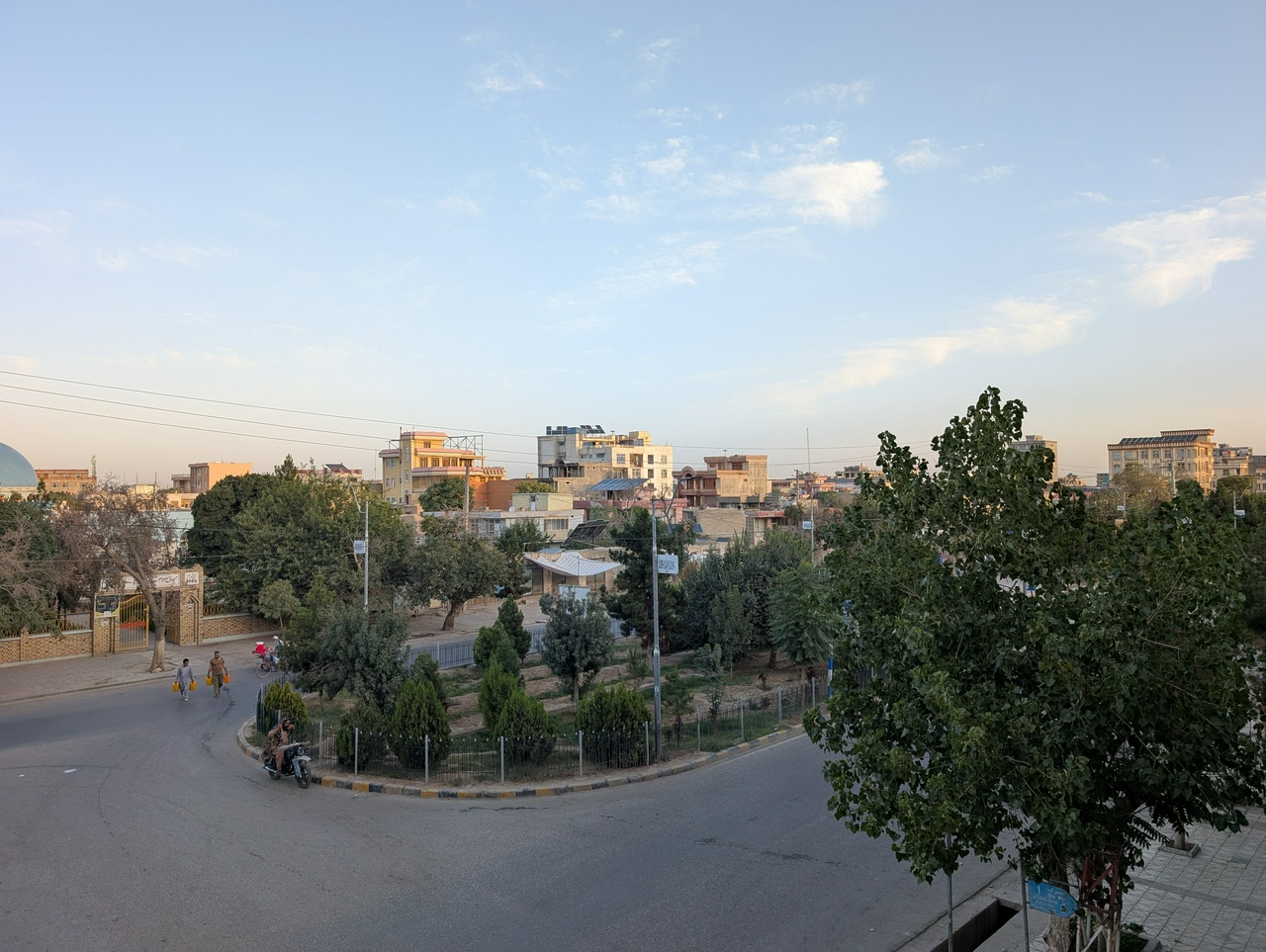
We took a walk around the centre, attracting stares from just about everyone. Some didn’t stop watching until we were out of sight. Others turned their stare into a smile when we caught their eye. A few shouted whatever English they knew — the most common being “Hello how are you I’m fine!” It was very genuine curiosity, mostly (I suspect) directed at Becs who, even in a hijab, stood out. Her eyes and face were visible, and instead of a burka, she wore trousers and a long-sleeve top that outlined her body. She handled the attention calmly but I could tell it became uncomfortable after a while, so we ate some Qabeli Plov and headed back to the hotel.
The next day was a ten hour ride to the capital, Kabul. We rode for four and a half hours straight before stopping under a tree that offered some shade and, we thought, peace. But within five minutes we had dozens of young men around us. They love touching everything on the bike. One guy was revving the engine, another fiddling with the GPS, and one was biting our wing mirror like a toddler trying to make sense of a new toy. Some spoke enough English to ask where we were from (always guessing Russian, German, and then American), and they’d repeat the same questions on loop.
The afternoon was longer in time but shorter in distance as the roads had turned to shit. Luckily, Turkmenistan had trained me well for this kind of riding and we were used to potholes, sand, and forty degree heat. The final hour was a slow approach into Kabul, where the energy kept building like water starting to boil. Kids playing football at the side of the road, women walking children back from school, markets starting to emerge, and a crescendo of car horns.
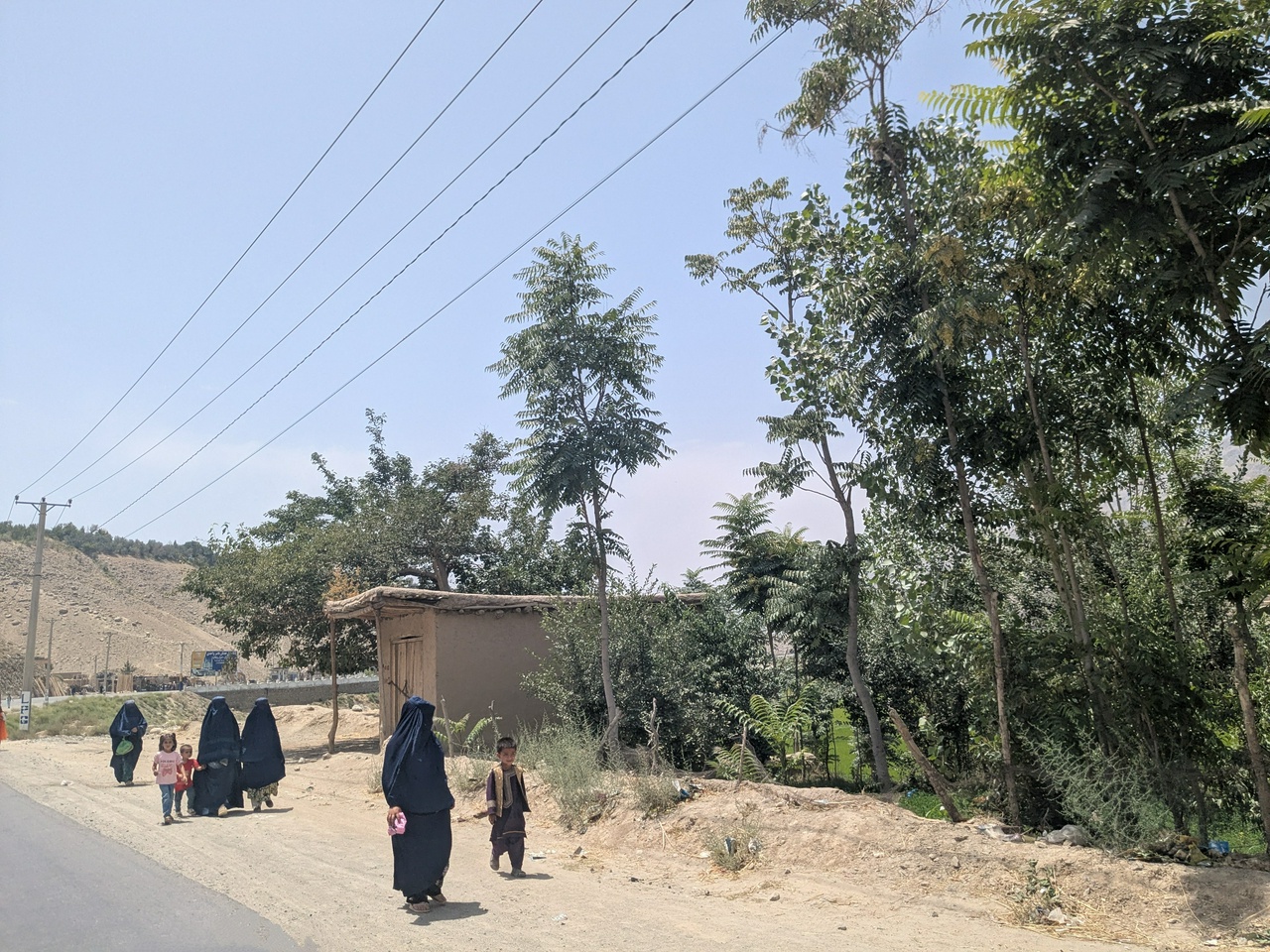
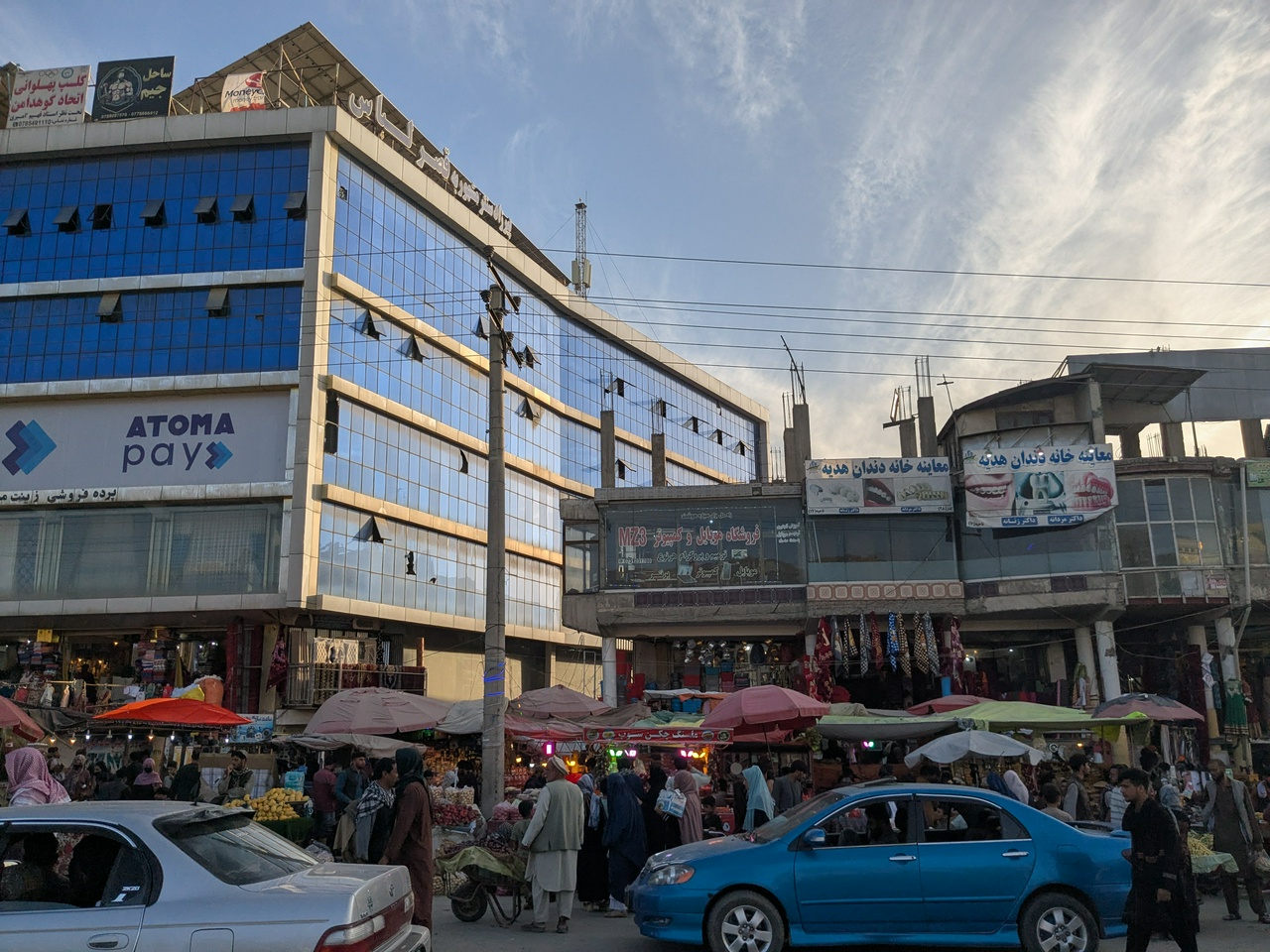
There are no rules on the roads. Literally none. No speed limits, no traffic lights, no designated lanes or directions. Most cars don’t even have license plates. It’s an organic chaos seemingly held together by the shared instinct that nobody actually wants to crash. I must’ve looked like a mug trying to navigate roundabouts properly, while everyone else just funnelled in and out from whatever direction they fancied.
We got to the hotel just before sunset. Our faces were grey from the dust our bums red from the saddle. The staff — also armed with assault rifles — unlocked the massive gate and we rode K inside. My negotiation skills were running low and my boots already off, so we paid what they asked and were shown to our room.
After a quick shower, we went out to find food. Normally, we’d pick based on menu and price but here it was about whether they’d accept a woman inside. We found one that did and walked in, past rows of men eating, into the family room at the back — behind a curtain and hidden from street view. The waiter spoke great English and interacted with Becs a little, but most of the conversation went through me. When he brought one too many Cokes and Becs tried to hand one back, he ignored her and picked up a different one from the table instead. It was hard to wrap my head around and even harder, I imagine, for Becs to experience.
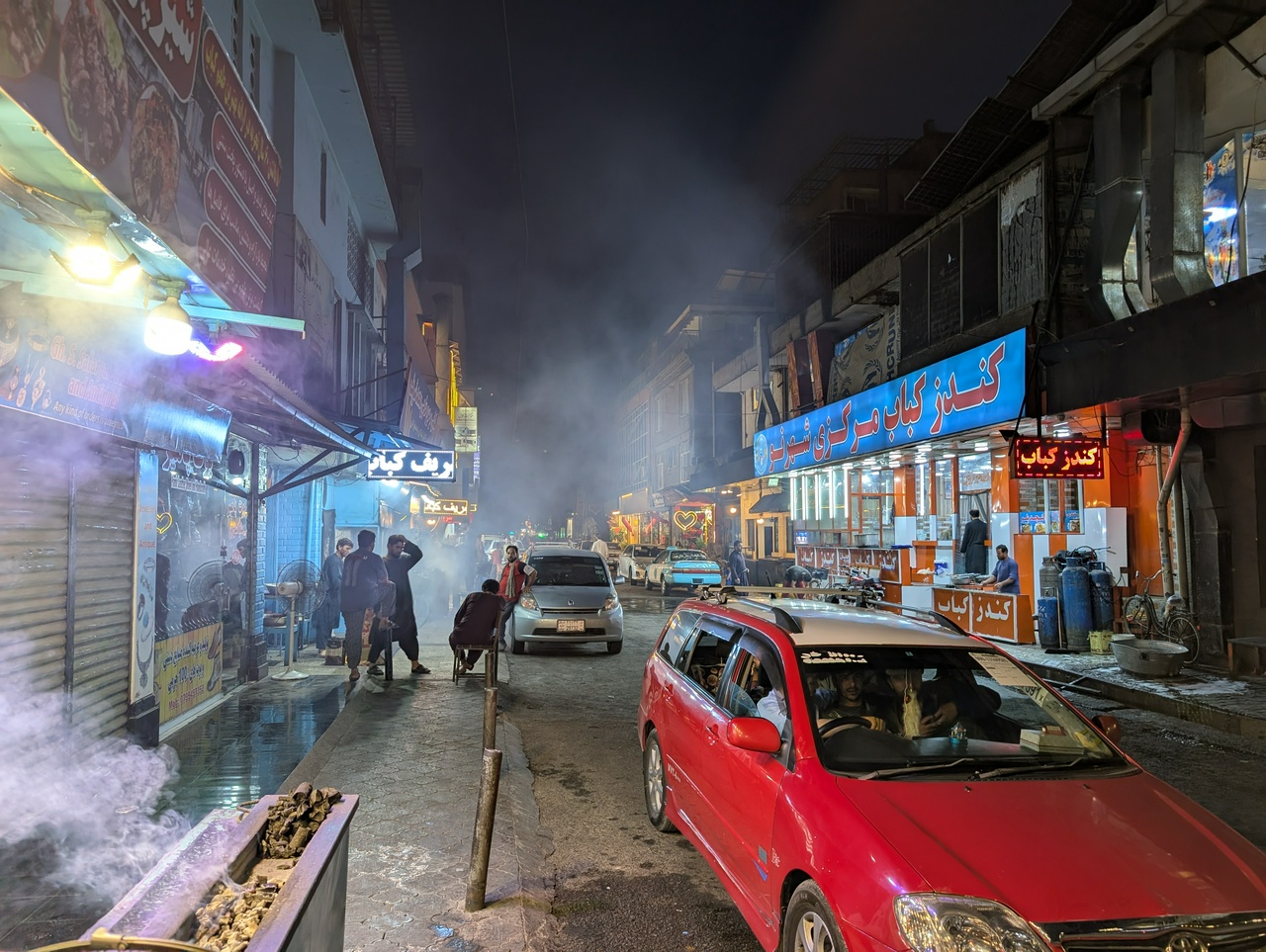
On the third day, we explored Kabul. The markets felt like those in any big city — people selling things to other people — but stripped to their most raw and gritty form. A man sharpening knives with no goggles, his child sitting quietly beside him. Three brothers baking bread beside their home-made clay furnace, the eldest looking like he hadn’t slept in days. A bird seller asleep in his bed, surrounded by towers of cages. It was a sprawl of isolated worlds, all bleeding into each other with loud noises and unforgettable smells. And pushing the senses into overdrive, the blue skies transformed into a thunderstorm.
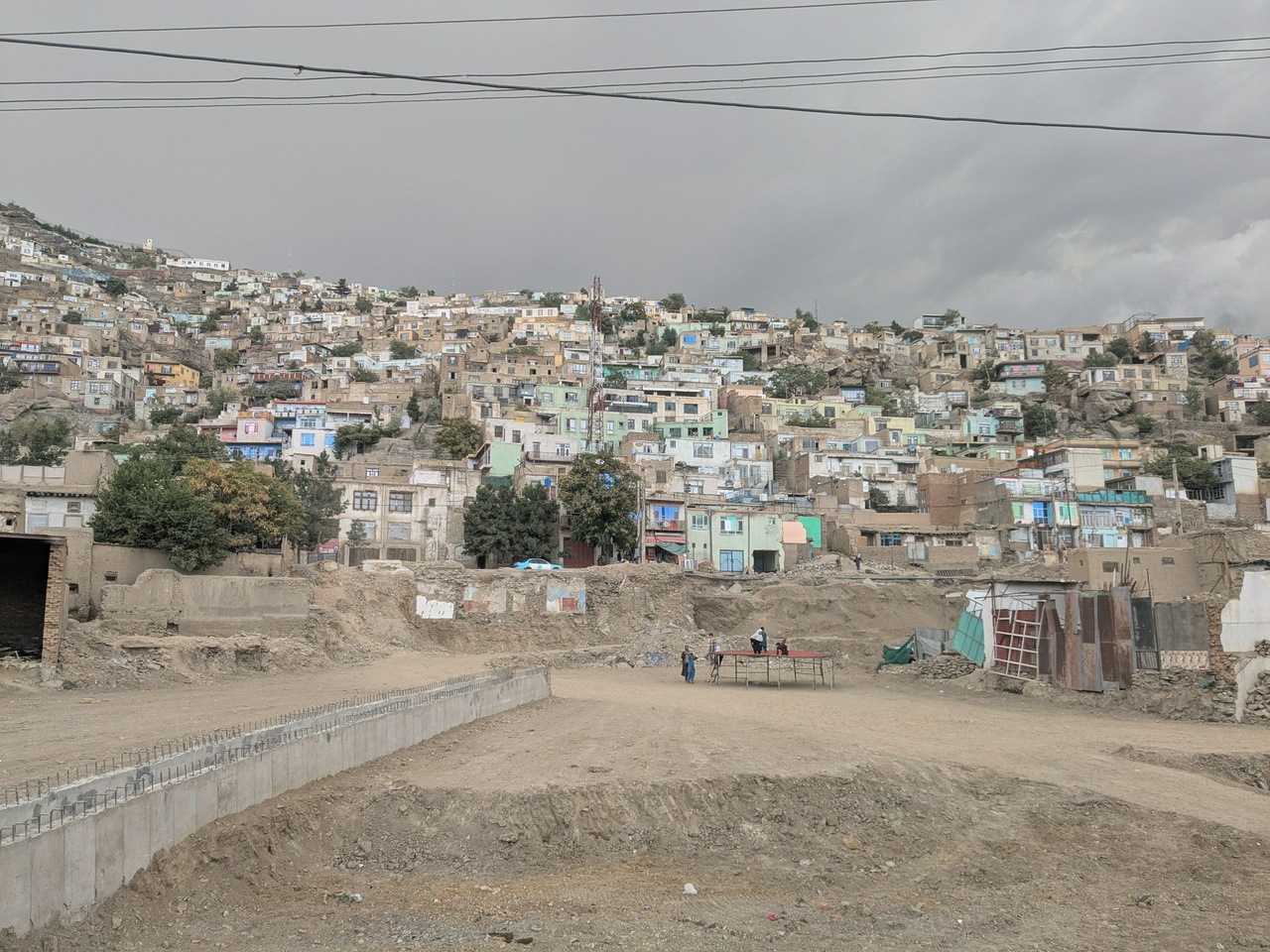
We ran back to the hotel, taking brief shelter at a Taliban checkpoint, and crashed. Another biker we’d met back in Russia turned up at the same hotel, and we went for dinner together, sharing stories of the Stans and our longing for a cold beer.
On the fourth day, we rode north toward a town called Kunduz. “What the fuck” was on repeat during that ride — first at the chaos leaving the city, then again at the mesmerising scenery once we got out of it.
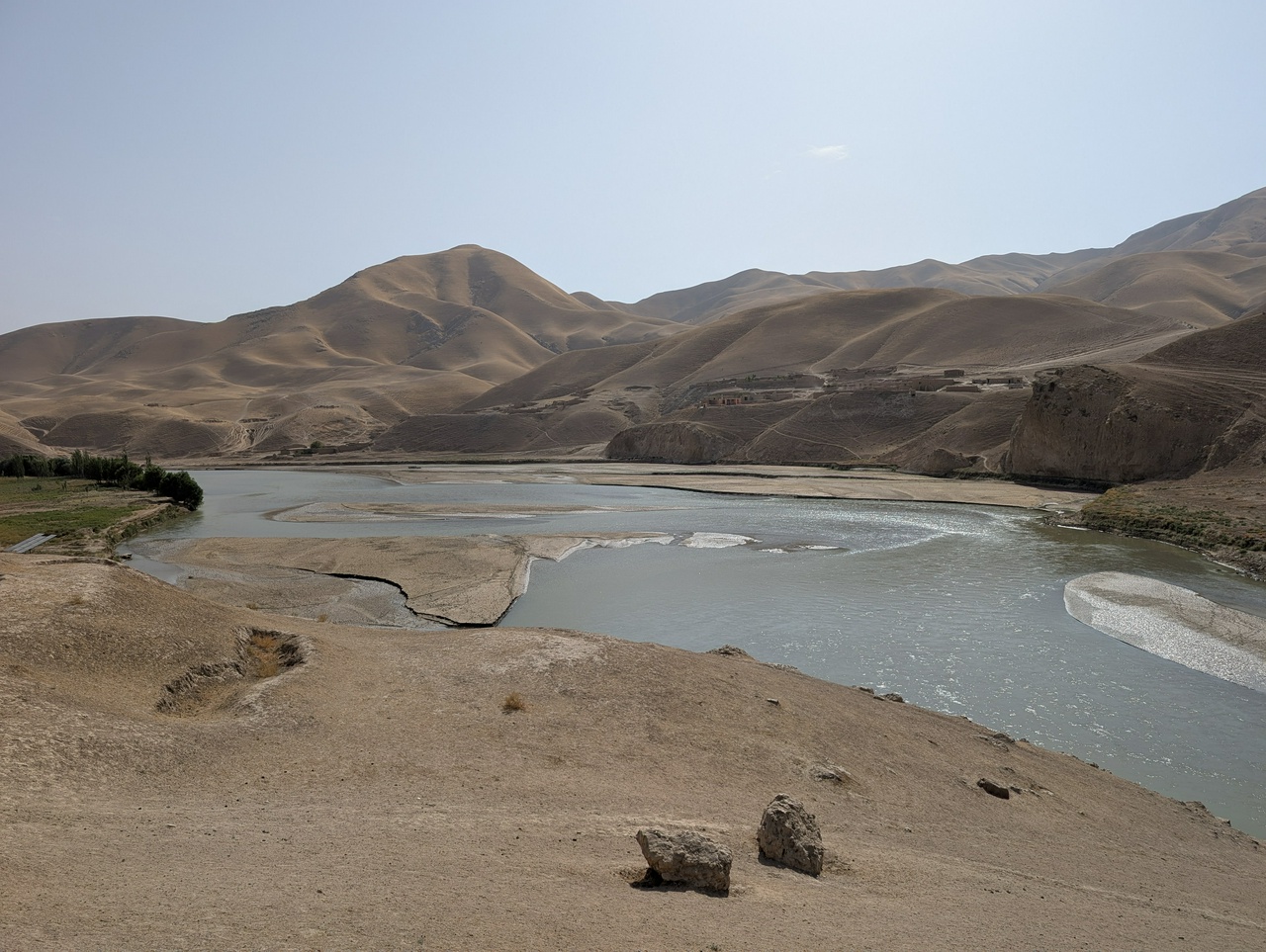
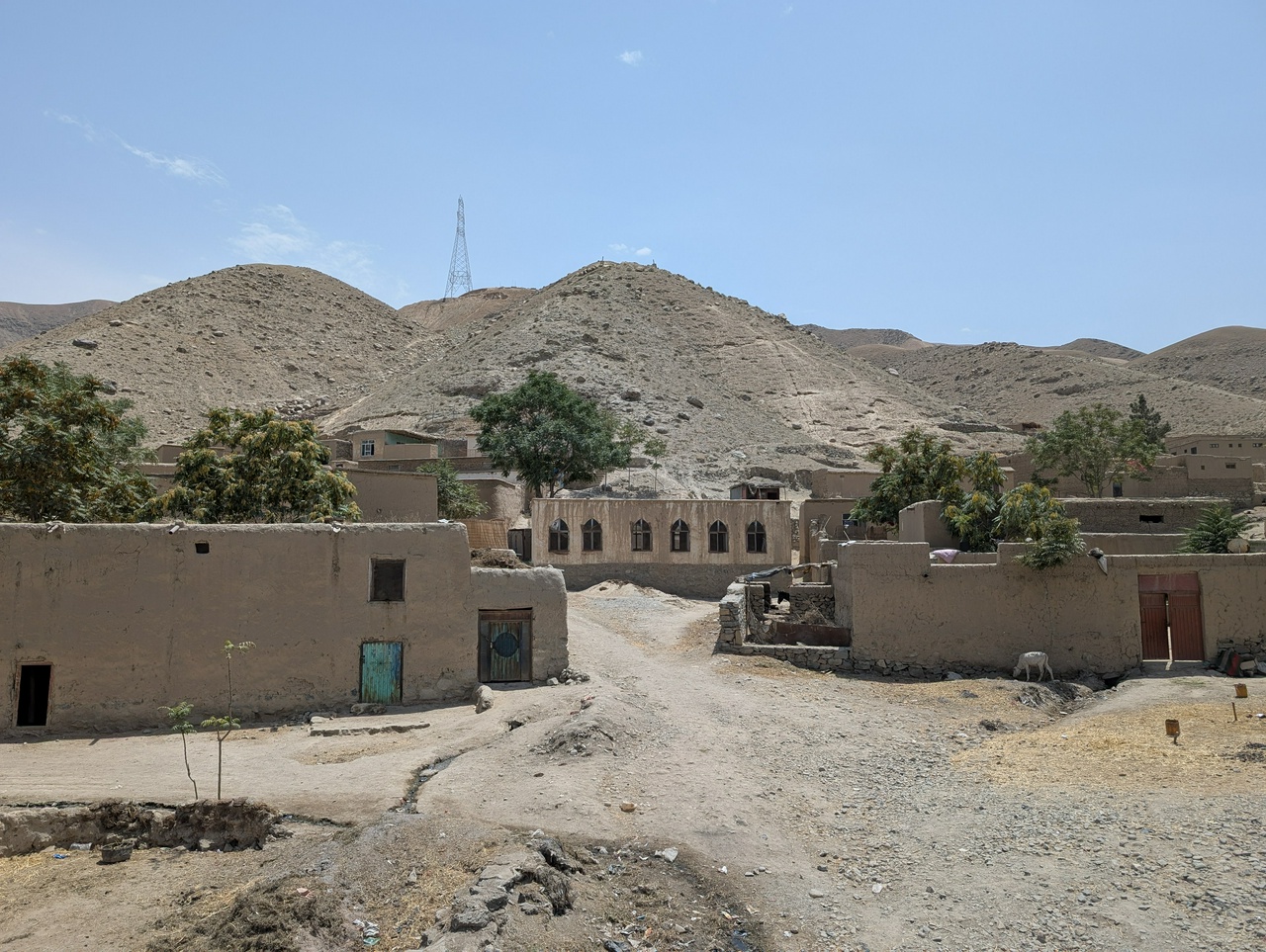
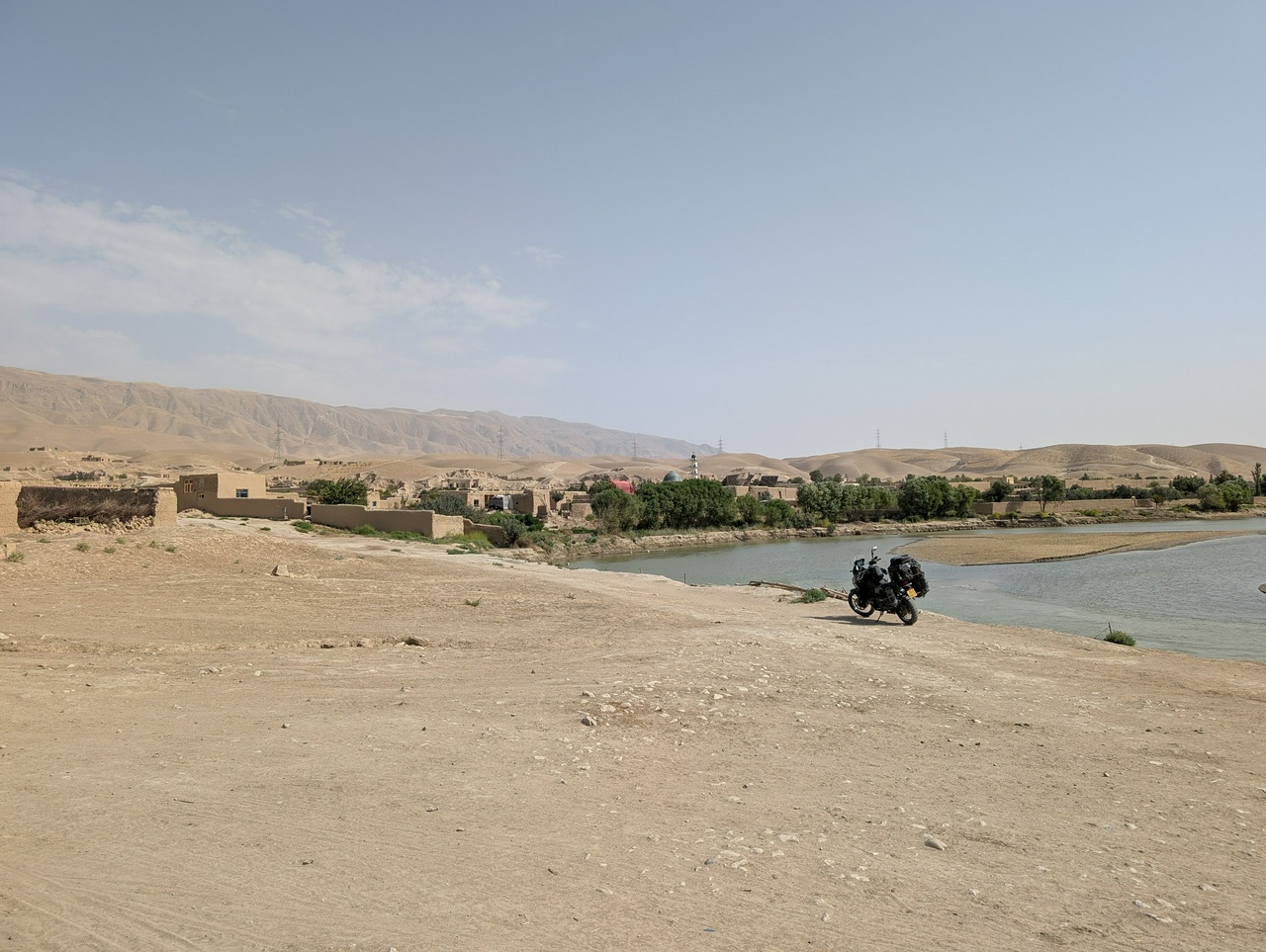
We stayed at the “5 Stars Hotel,” which had a squat toilet and dirty bedsheets. But the air con worked and it had wifi, so by Afghan standards… it really was 5 stars.
I later downgraded it to 1 star when the hotel manager knocked on our door and came in with two men carrying guns. They said they were police and wanted to make sure we had no drones. They unpacked all our bags, found our stash of cash, and stole a hundred dollars. Right in front of me. Fortunately, Becs was locked in the bathroom, they weren’t aggressive, and they left our passports and other valuables alone (including another four hundred dollars in the same wallet, surprisingly). I guess the western government advice has a point, after all.
We didn’t sleep that night. We wanted to get the hell out of there and we were on the road by 6am and heading for the Tajikistan border — the end of the rollercoaster in sight.
We pulled into a petrol station, woke up the guy working there, and asked for “super.” He yawned. I yawned. Halfway through filling up, I checked the price and realised he was using the diesel pump. “What the fuck.” Again. I pulled the nozzle out of the bike and he told me to smell it. Thankfully, it was petrol. The quality, who knows.
The final “what the fuck” came moments later, just as we pulled out of the station and watched a car completely level a tuk tuk at a ninety degree angle. As we rode past, local men were dragging out a limp body. I felt completely helpless — there was nothing we could do but keep riding.
The rollercoaster had come off the rails entirely and we slid our way over the border and towards our next country.
Next stop: sleep.